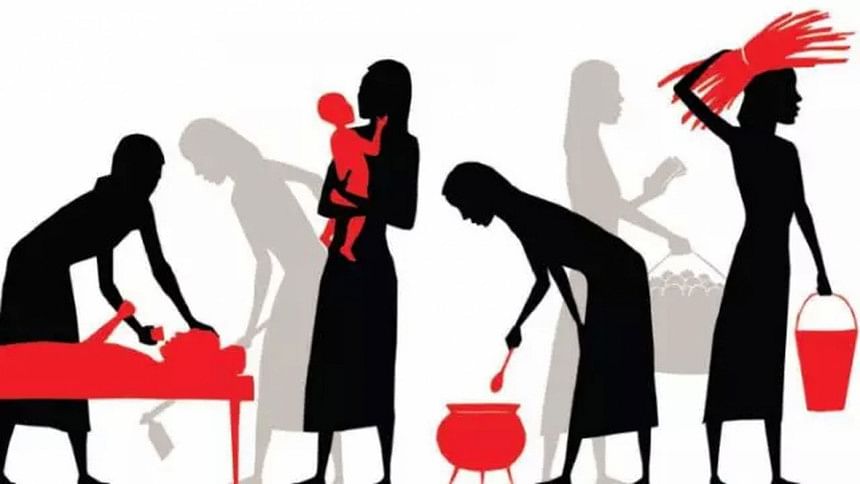Women, unpaid work and the coronavirus

Ask the average man whose wife has no paid job what she does and the response is likely to be, "Nothing". Ask a woman who does not have a paid job what she does, and she also is likely to say, "I don't do anything." Then try asking who cleans the house, washes the clothes and dishes, plans and prepares the meals, takes care of the kids, and manages the household accounts: "I do." For women who do have a paid job, household work is likely a second full-time job on top of the first, but without the benefits of weekends or holidays. And the coronavirus has only made it worse.
Children are home all day, requiring attention when previously there was a break while they attended school. Everyone is stressed. Violence at home has risen. And as usual, women are expected to silently cope with all of the problems, helping others while exhibiting no needs of their own.
Every year on March 8 (and around that time), people around the world pause to reflect on various issues facing women. We discuss progress and setbacks, positive changes and lingering problems. We make commitments to improve the situation, whether it be to have more women represented in government, to finally do something about violence against women, or to address women's pressing physical and mental health needs. And then we forget.
Two things would be helpful to remember. First, whatever services we feel should be extended to women, these are really only a tiny return on the amount that women contribute to society through their unpaid household (and agricultural, handicrafts, and other) work. All of society is indebted to women. Women's unpaid household work represents a contribution to the economy that allows others to earn money and make their more visible contributions. We should make good on that debt by ensuring that women have access to the services they need.
Second, our society can never achieve its goals if we continue to allow half of the population to fall behind. Women's manifold skills and talents will continue to be wasted if they do not have access to the same opportunities as men, and if there are not better social policies to reduce the burden of their household work.
If we acknowledge these two points, then we can see that programmes for women are not charity—they are an investment in our society and a just return for all that we take from women. Perhaps we can also see that it is not enough to devote to women an annual day of attention (and that too blemished by insulting pink-tinted ads targeting women as beautiful things to be consumed rather than as full sentient contributors to society). Whatever policy is being considered, we should always ask how it will affect women differently from men.
When we talk about essential workers, we should remember that almost all women, formally employed or not, are essential workers, doing work that has more true meaning and value than much of the work we openly acknowledge and applaud.
When we talk about pensions, we should remember that housewives are ignored despite their decades of service, often 16 hours a day, 365 days a year. When we discuss the mental health issues of children during the pandemic, we should remember that women are on the frontline, caring for those children, and thus also in need of services and support. The coronavirus may kill more men than women, but that doesn't mean that only men are affected: women care for those men and may lose their source of livelihood when a male family member dies.
On a more personal level, we can also remember to acknowledge the hard and valuable work performed by the women in our families, so that when people ask what your wife, mother, sister or daughter does, rather than say "Nothing" or "She's a teacher/doctor/businessperson", we can respond: "She cares for my entire home and family… and she's a teacher/doctor/businessperson." And for all those women out there, please remember—when people ask what you do—not to dismiss all the important work that you contribute daily to keeping your family healthy, safe, and more or less sane as the coronavirus pandemic continues to change so many aspects of our lives.
Debra Efroymson is Executive Director, Institute of Wellbeing.

 For all latest news, follow The Daily Star's Google News channel.
For all latest news, follow The Daily Star's Google News channel. 



Comments